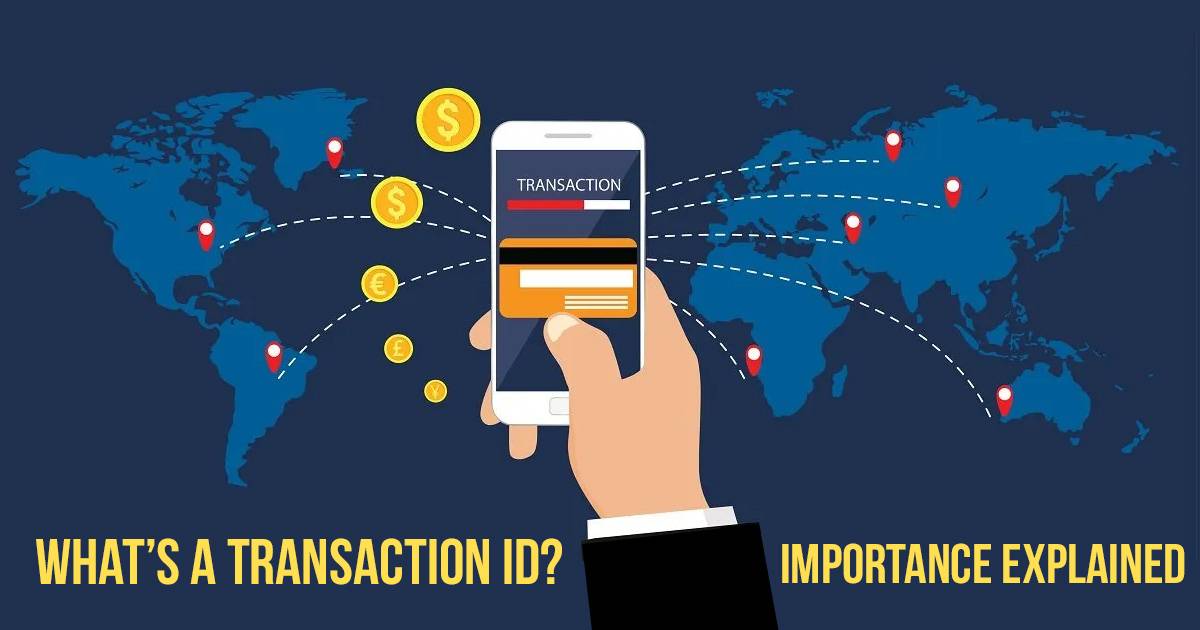Understanding Transactional ID & Its Importance to Buyers & Sellers

When it comes to online payments, understanding key terms can enhance your experience as a buyer or seller. One essential term to grasp is the transaction ID. It’s important to understand its importance, not only for buyers but also for sellers.
What Is a Transaction ID?
A transaction ID is a distinct combination of numbers and letters created during the electronic transfer of funds between a buyer and a seller. This identifier serves to track the transaction throughout its lifecycle, enabling both buyers and sellers to access transaction details efficiently.
The Role of Transaction IDs for Buyers
Transaction IDs offer several benefits to buyers, making online shopping more manageable.
Easy Tracking of Purchases
When you complete an online purchase, a receipt or confirmation email containing your transaction ID is sent to you. This distinctive identifier simplifies the process of tracking your order. When checking your shipment status or reaching out to customer service, sharing the transaction ID helps expedite assistance.
Facilitating Refunds and Returns
If you need to return an item or request a refund, having your transaction ID readily available is essential. It helps the merchant quickly locate your purchase in their system, making the process smoother.
Addressing Chargebacks
Transaction IDs also play an important role in chargebacks. When disputing a charge with your bank or payment processor, they will request this ID. It enables them to investigate the matter and decide whether the charge should be reversed.
The Importance of Transaction IDs for Sellers
Sellers also benefit from transaction IDs, which can streamline their operations.
Simplifying Record Keeping
Transaction IDs simplify record-keeping by providing a unique identifier for each sale. This system simplifies the process for merchants to track sales, oversee cash flow, and manage inventory, contributing to precise financial records and assisting in tax reporting.
Enhancing Customer Service
Using transaction IDs can significantly improve customer service. When a customer has questions about their order, the seller can quickly find the relevant transaction using the ID, fostering a positive experience and building trust.
Managing Refunds and Chargebacks
Sellers depend on transaction IDs to process refund requests and handle chargebacks efficiently. When a customer requests a refund, the seller can access the transaction record linked to the ID, facilitating a quick resolution.
Common Confusions: Transaction IDs vs. Other Identifiers
Understanding how transaction IDs differ from other identifiers in the payment process can help prevent confusion.
Transaction ID vs. Terminal ID
A terminal ID is designated for a particular point-of-sale terminal, commonly utilized in brick-and-mortar retail environments. It identifies where a transaction occurred, while a transaction ID pertains specifically to the transaction itself.
Transaction ID vs. Payment ID
A payment ID is assigned by a payment processor and, while serving a similar purpose, is not the same as a transaction ID. The latter is tied directly to the specific transaction.
Can Transaction IDs Be Faked?
Transaction IDs are designed to be unique and secure, but like any other piece of information in the digital world, they can potentially be faked or manipulated by malicious actors. However, reputable payment processors implement strong security measures to reduce this risk significantly.
Protecting Your Transaction ID
To ensure the safety of your transaction ID, consider the following protective measures:
- Secure Your Information: Never share your transaction ID publicly or with unauthorized parties. Treat it like a password—keep it confidential.
- Use Trusted Payment Processors: Stick to well-known and reputable payment processors that use encryption and security protocols to protect transaction data.
- Monitor Your Accounts Regularly: Keep an eye on your bank and payment processor statements. Report any suspicious transactions immediately.
- Be Cautious with Emails: Phishing scams often attempt to capture sensitive information. Stay cautious of unexpected emails requesting your transaction ID or any personal details. Always verify the source before responding.
Can Transaction IDs Be Used for Hacking?
While transaction IDs themselves are not typically a direct route for hackers to exploit, they can potentially be part of a larger scheme. If a hacker gains access to your transaction ID, they may attempt to use it in combination with other information to commit fraud, such as initiating chargebacks or accessing your account with a merchant.
Ways to Prevent Hacking Attempts
To safeguard against such hacking attempts, consider these precautions:
- Enable Two-Factor Authentication (2FA): Many online payment platforms offer 2FA. This provides an additional security measure by necessitating a secondary form of identification alongside your password.
- Use Strong Passwords: Always create complex passwords for your online accounts and change them regularly to enhance security.
- Stay Informed About Scams: Being aware of common scams can help you recognize and avoid potential hacking attempts.
- Keep Software Updated: Ensure that your devices and applications are regularly updated to protect against known vulnerabilities.
How to Find Your Transaction ID
Finding your transaction ID is generally straightforward.
- Receipts and Invoices: After completing a transaction, check your email for a receipt or invoice from the merchant. The transaction ID typically appears alongside key information, including the merchant’s name, purchase date, and order number.
- Payment Processor Statements: If you use a payment processor like PayPal or a credit card, you can find the transaction ID on your account statement by logging in and locating the specific transaction.
- Merchant Accounts: If you have an account with the merchant, log in to view your order history, where your transaction ID will be associated with each purchase.
Unlocking the Power of Transaction IDs
Understanding what a transaction ID is in online payment empowers both buyers and sellers. These unique identifiers streamline the purchasing process, making it easier to track orders, process refunds, and resolve disputes. Familiarity with transaction IDs enhances your online shopping and selling experience, ensuring smoother and more efficient transactions. The next time you complete a purchase or manage a sale, remember the importance of your transaction ID—it’s the key to a seamless online payment experience.
